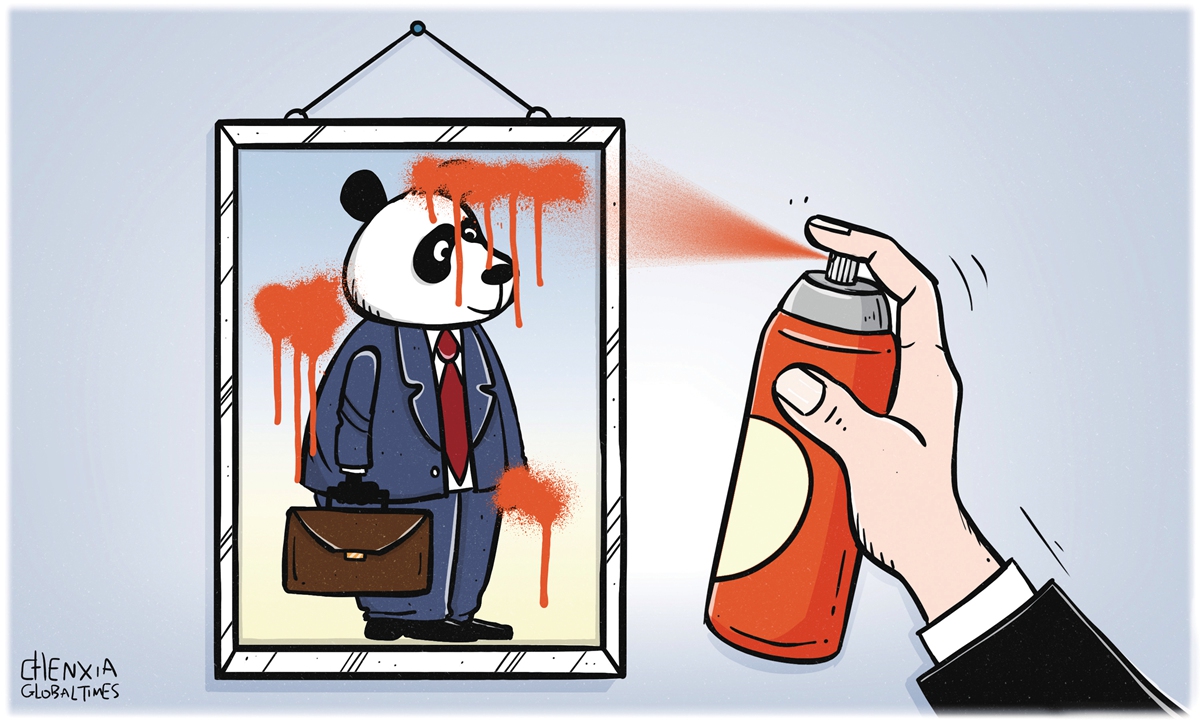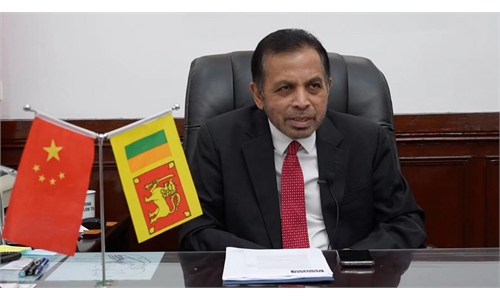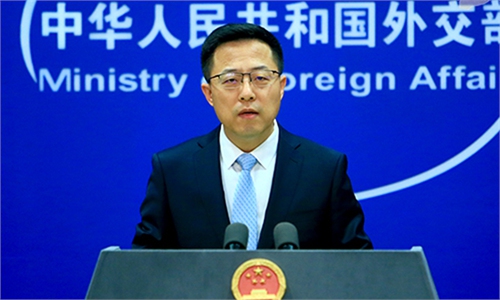
Illustration: Chen Xia/GT
The escalating economic crisis and political unrest in Sri Lanka have drawn global attention. Ranil Wickremesinghe, who was sworn in as president a few days ago, has long been striving for foreign aid when he was prime minister. It is difficult for Sri Lanka to get out of its predicament on its own. The truth is, the international community, including China, has always lent a helping hand to the country.
Since the outbreak of the COVID-19 pandemic, China has provided more than $2.8 billion in financial assistance to Sri Lanka. In July, Chinese Foreign Ministry spokesperson Wang Wenbin said that over a period of time, China has announced it will provide 500 million yuan ($74 million) of emergency humanitarian assistance to Sri Lanka.
China's aid to Sri Lanka takes a humanitarian focus on livelihood issues in the country. It donates food to local students, children and poor families, and provides medical supplies to medical workers through multiple channels to alleviate local public health problems. China's aid to Sri Lanka has been going on for a long period of time. However, some foreign media outlets are busy smearing and criticizing China.
From the perspective of the content of assistance, China's humanitarian aid to Sri Lanka has effectively alleviated the crisis of local people's livelihoods. China has given priority to aid for vulnerable groups who are most affected by the economic crisis. Yet Western media rarely reported on China's aid which doesn't match China's real contributions.
From the perspective of the history of assistance, China's overall financial assistance and loans to Sri Lanka over the years have greatly helped Sri Lanka to alleviate its economic crisis. Yet Western countries, including the US, Japan and the UK, have only gotten in touch with Sri Lanka since quite recently, they have no mature plans for assistance. And the implementation of their aid plans has also stagnated due to concerns for debt sustainability, political stability and other reasons. However, in Western media reports, the US, Japan and the UK have become the major forces to help Sri Lanka. This is completely out of touch with reality.
Last but not least, another false accusation the- Chinese dept trap - has been refuted by scholars repeatedly, yet Western media outlets continue to turn a deaf ear to the voices.
The current global foreign aid system is transforming from being dominated by Western powers towards global participation. And China has changed from a recipient country to a major donor among developing countries. China's foreign aid model is based on technical cooperation and assistance through projects, without political conditions attached. China has been assisting recipient countries to achieve sustainable development goals on an equal footing and mutual benefits.
China's assistance approach takes the wisdom of an old Chinese saying - "Give a man a fish and you feed him for a day; Teach a man to fish and you feed him for a lifetime." Obviously, this way is more favorable for recipient countries' future development, with or without the acknowledgment of the Western media.
Objectively speaking, in years to come, global public opinion won't give the fair credit that China's real efforts in international aid deserve. This won't change any time soon. We should keep a sober mind to the fact and try to make a change. Meanwhile, we shouldn't deliberately pursue to change the narrative of China's aid in global public opinion. Our goal is helping those countries which need assistance, and teaching them how to fish - ways to better promote their own development.
Sri Lanka is stuck in an extreme predicament with a severe debt crisis, affecting not only the country itself but also the wider world. It needs help from other countries. Sri Lanka must avoid being turned into a geopolitical arena of major power games.
The authors are research fellows on the theme Exploring Cooperation across Himalayas at South Asian Studies, Sichuan University. opinion@globaltimes.com.cn


